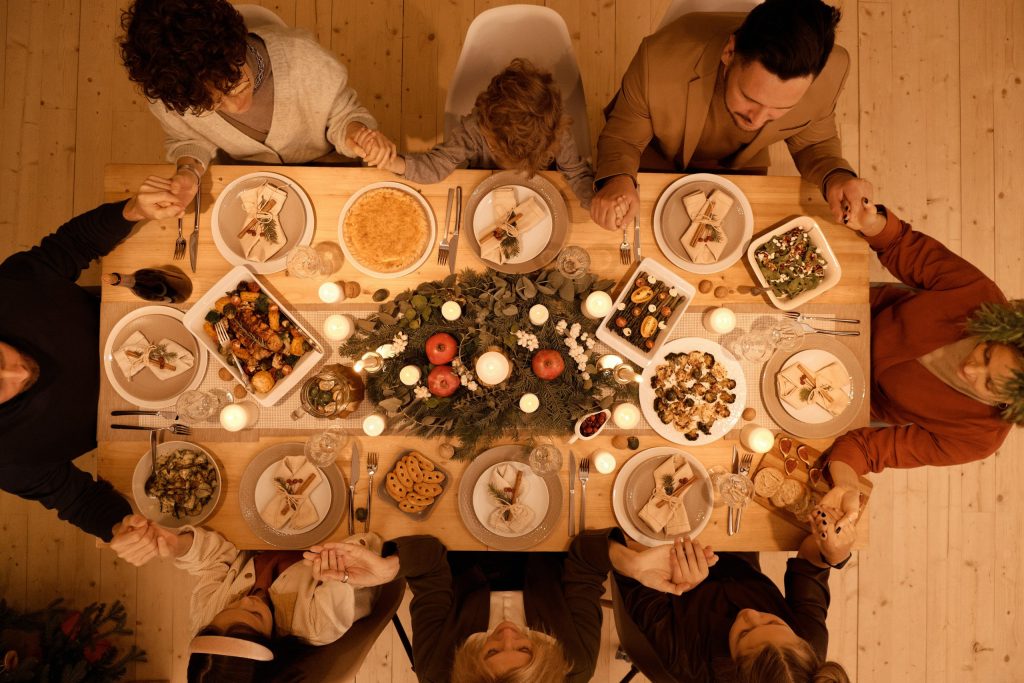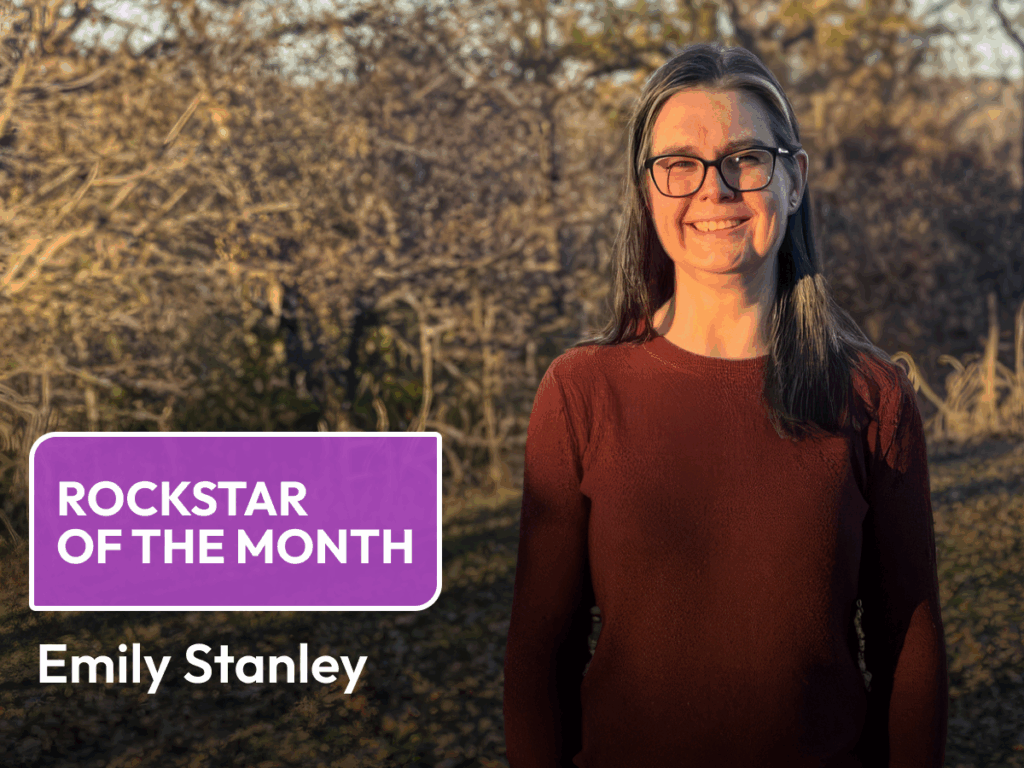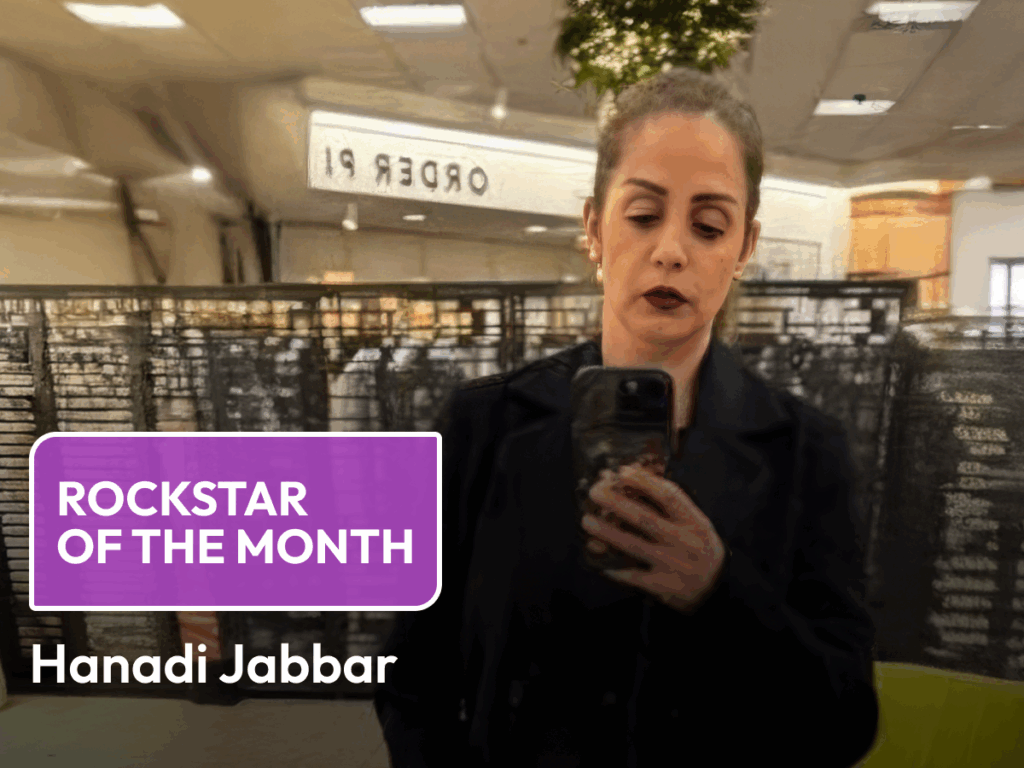The holidays can be a time of excitement, joy, and social gatherings. They can also be a time of high expectations for ourselves and others, surround us with temptation of excess food and drink, and bring up memories of difficult past or current family dynamics. This traditional time of togetherness can also make physical and emotional connection or distance with family more pronounced. Planning and preparing for the dietary and emotional situations that may arise can be very helpful in navigating the next few months. Below are some tips that can help you not only survive, but hopefully thrive during the holiday season.
The MOOD
- Examine holiday expectations. Ask yourself:
- What do I want out of this holiday?
- Where do my holiday expectations come from?
- How will I feel if my expectations are not met?
- What do I enjoy about the specific holiday? Is it the togetherness, the food, the traditions honored, the religious or cultural significance, the games played, or football games watched? Can I tune into what I enjoy and work on tuning out what triggers me?
- Prepare for family encounters or the impact of not meeting this holiday by exploring the following:
- Ways you get “hooked” into family conflicts
- Ways to take care of yourself when with your family or if apart from them this year
- Past resources that have helped you engage with your family or could help you manage if not with family this year
- Alternatives (e.g., limiting time spent with family, using activities as more neutral ways to engage, acknowledge in advance conflictual topics that are off limits, etc.)
- Plan and prioritize. Balance what you need to do with what you want to do. Set aside time for rest and relaxation.
- Acknowledge the holiday stress. It is not uncommon to feel sad or depressed. Unrealistic expectations and past holiday hurts can contribute to stress. Additionally, the Covid pandemic and the ways in which it may impact your festivities can also contribute to mood symptoms. Becoming aware of your feelings and exploring the messages that they convey can be helpful.
- Develop a plan to keep in contact with your support system (friends, family, mental health practitioners, support groups), and plan to engage in the coping skills you find effective in managing your mood and stress.
- Create your own traditions. It can be exciting to use the holiday season to create and start your own holiday rituals and create positive memories. What are some traditions that you would like to start for yourself and/or your loved ones?
- Honor holidays past. Holidays are often times when losses are felt deeply, and unfinished business surfaces. This is an opportunity to remember special family members or friends who have passed, or those that you love who you cannot be with. Find creative ways of including their specialness in your holiday.
- Gratitude. Take time to reflect upon what you are grateful for this holiday season, even amongst the hardship that may surround. Practicing gratitude opens up room in our hearts for appreciation, love, and positive energy to combat negativity.
The FOOD
- Don’t forget your WHYs. Make a list of all of the reasons why you want to work on weight loss. Keep the list handy as you enter a season of much temptation. A focus on your health does not mean that you cannot partake in holiday food. However, it may help you be more selective about what and how much you consume as you remain cognizant of your longer term goals.
- Review the foods that are often present at your holiday gatherings. What do you really enjoy and what could you skip? If you are hosting, what healthful dishes could you ensure are at the meal? If you are celebrating at another location, could you contact the host and find out what is on the menu and/or bring a dish to share? Mentally pre-plan your plate so you have less anticipation anxiety, and a realistic mental game plan going into the meal.
- Practice mindfulness and mindful eating. Keep bringing yourself back to the here and now. Notice what is on your plate; all the colors, textures, aromas, and employ all of your senses to tune into the experience. Eat slowly to engage with each bite. While conversing, put your utensils down or glass away from your mouth, focus on attending to the conversation.
- Recognize and embrace that food is part of the holidays. However, food often gains outsized importance this time of year. Attend to all of the other aspects of the holiday you enjoy, including the food. Use this focus to help “fill you” in more ways than one.
- If you utilize food as a means of emotional coping, make sure to limit the amount of trigger foods in your home. Identify alternate means of coping prior to the holidays so they are more readily accessible if the need arises.
- Practice saying “No”. Oftentimes we eat because we don’t want others to feel bad if we say no, as if turning down food is turning down the individual offering. Remember that saying no to something you don’t want to eat, for whatever reason, is your right and can be an important part of your self-care and advocacy.
- Set realistic goals and expectations for your holiday dietary and exercise behaviors. Check in with yourself and begin dialogue with your Enara team to determine what would be reasonable to expect during the next few months.
Roopal Lalaji, PsyD
Enara Clinical Psychologist
Health and Behavior Change Courses
Would you like additional support? Check your inbox for a monthly email containing links to sign up for various health and behavior change courses! Some of our offerings include:
Dialectical Behavioral Therapy for Breaking Free from Binge Eating
In this 8 week group, Drs. Lydia Alexander and Roopal Lalaji will teach you Dialectical Behavioral Therapy (DBT) strategies to help you be present in the moment, practice adaptive means of coping with stress, regulate emotions, and improve your interpersonal relationships and communication. You will employ these DBT skills to better understand your triggers for binge eating behavior and break the cycle.
Mindful Eating in Practice
Put mindful eating into practice with this 4-week group led by Drs. Lydia Alexander and Roopal Lalaji. The group is focused on helping you transform your relationship with food and develop a kinder, gentler approach to eating.
Weekly group sessions will include psychoeducation on mindful eating as well as guided mindfulness practices to engage your senses and encourage a deeper appreciation of every bite and ingredient you consume. This group will challenge you to plan out your weekly meals with intention, remove distractions, reconnect with your senses, and increase your awareness of your entire experience of eating.
Healthy Eating for the Holidays (lead by a Nutrition Specialist)
Remember that however you experience the holidays, the season will pass. There may be moments of joy, and there may be challenging times. Along the way, make sure to take care of yourself, mind and body.



